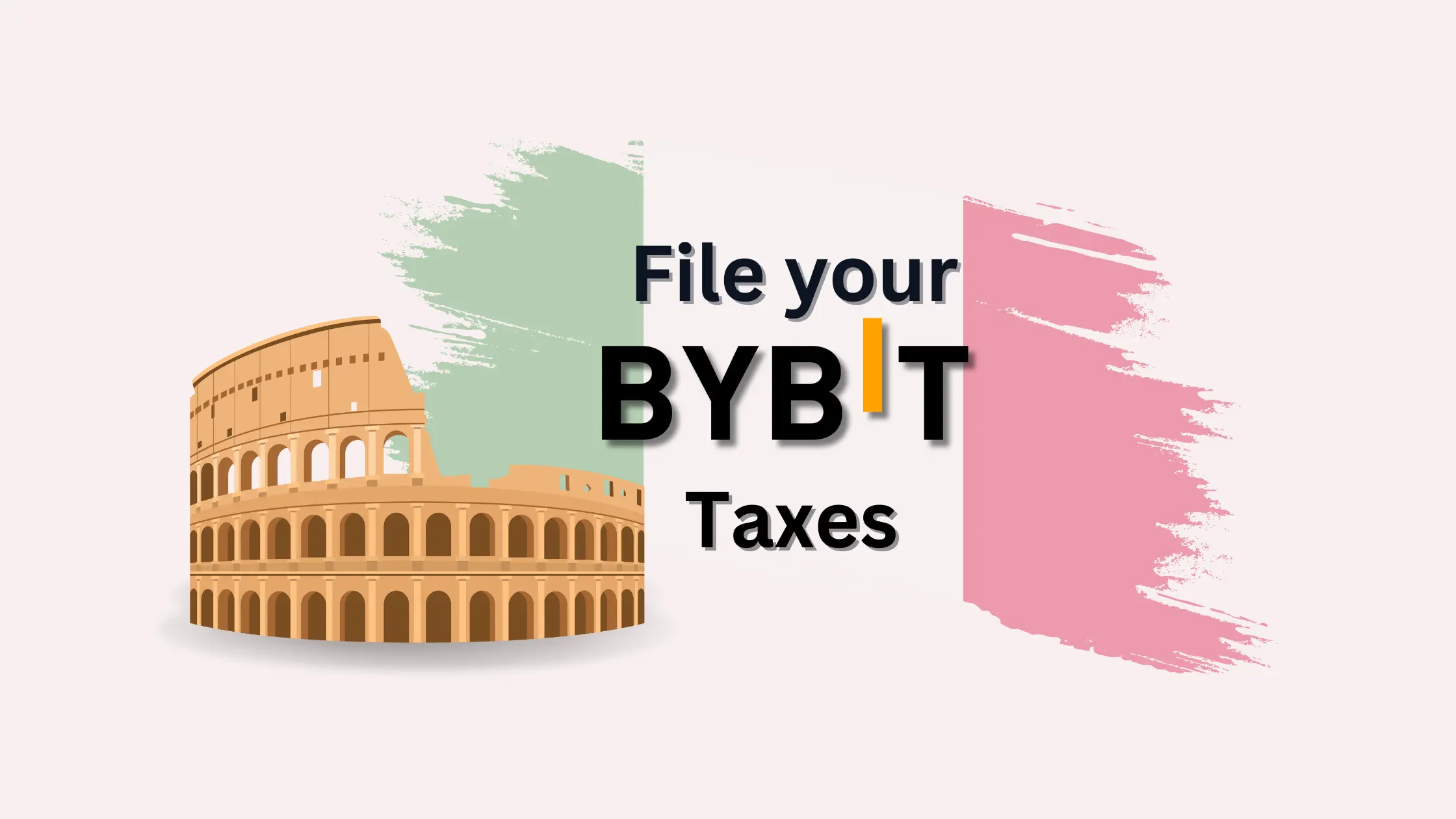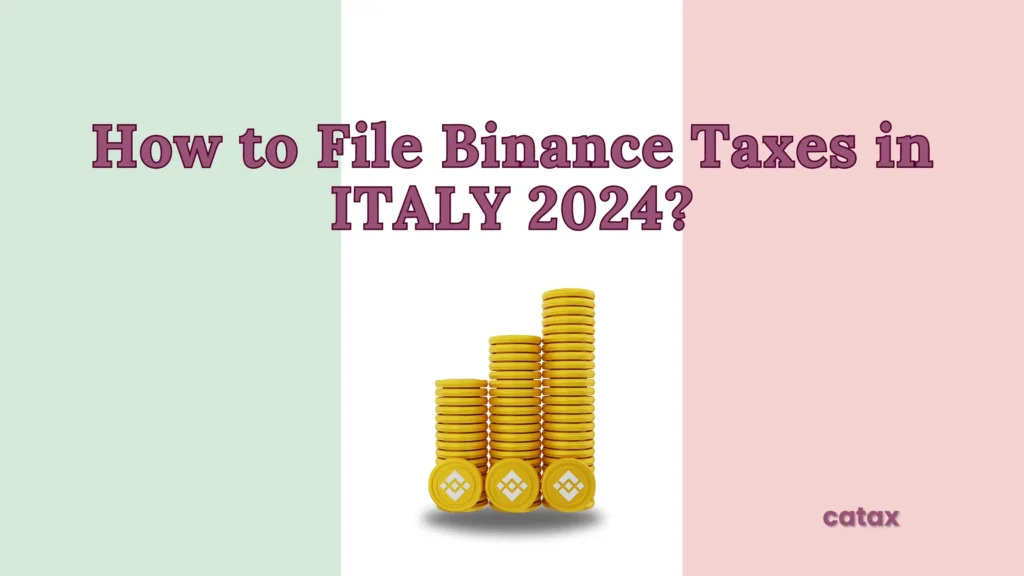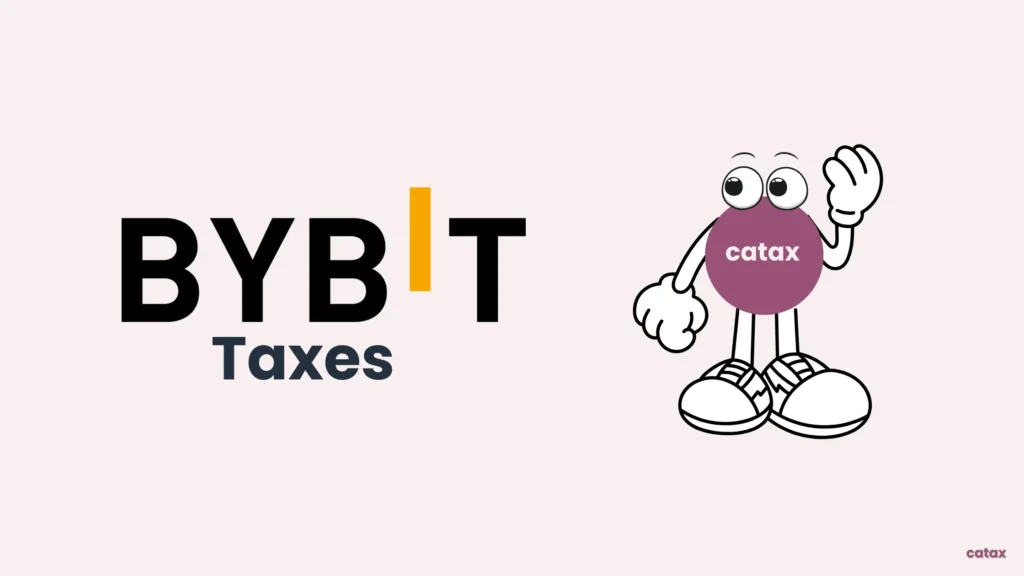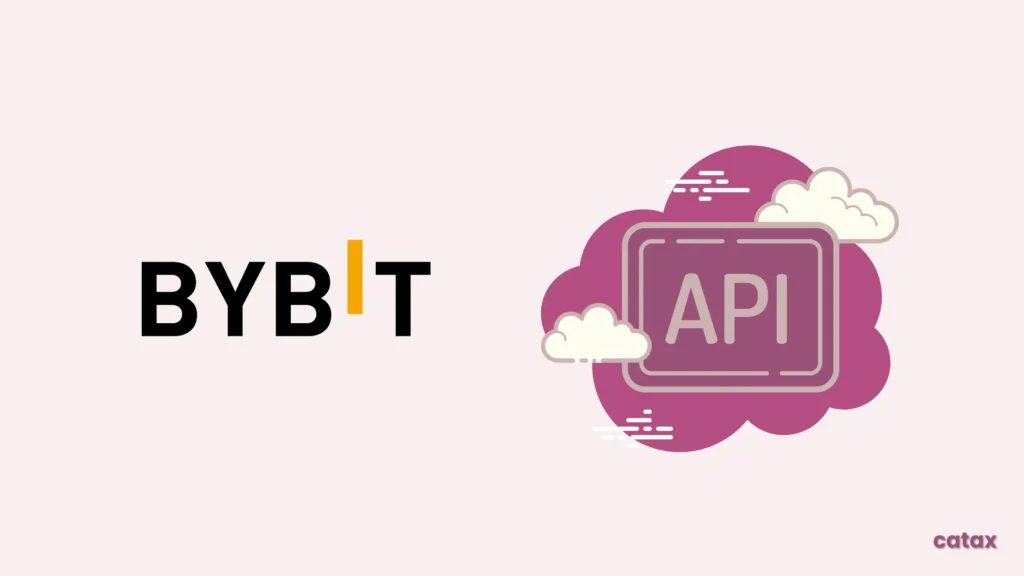This manual provides a comprehensive overview of the tax laws specific to Italy. Furthermore, it offers practical tips for effectively managing your cryptocurrency tax obligations. Moreover, it includes real-life examples to illustrate key concepts, making it easier for you to grasp the information. Consequently, this manual aims to empower you with the knowledge and tools needed to navigate the complex world of Bybit taxes in Italy.
- Do you have to pay tax on Bybit and crypto in Italy?
- How much tax do I pay on income from Bybit crypto in Italy?
Can the Italian Revenue Agency (Agenzia delle Entrate) monitor cryptocurrency transactions, including those on Bybit?- How should you handle tax reporting for Bybit transactions in Italy?
- Guidance for Filing Bybit Crypto Taxes in Italy: Choosing the Right Form and Deadlines
- Navigating Crypto Taxes in Italy for Bybit Enthusiasts: A Friendly Guide
- Income Tax Slab Rate for Crypto in Italy
- Are Any Crypto Transactions Tax-Free in Italy?
- How are crypto transactions taxed in Italy, particularly on Bybit?
- Spending crypto on goods or services
- Mining and staking rewards
- Defi investments
- Navigating Your Bybit Taxes in Italy with Catax: Essential Steps
Do you have to pay tax on Bybit and crypto in Italy?

How much tax do I pay on income from Bybit crypto in Italy?
In the most recent budget, the tax rate on Bybit crypto income was changed. Now, if you make more than €2,000 from cryptocurrency trades, the government will tax you at a rate of 26%. The former rule said that you would only have to pay the 26% tax rate if the total value of your cryptocurrency holdings was more than €51,645.69 for more than seven days in a row during the tax year. You are also required to pay Income Tax if you make money through cryptocurrency. The rate depends on how much money you make and ranges from 23% to 43%.
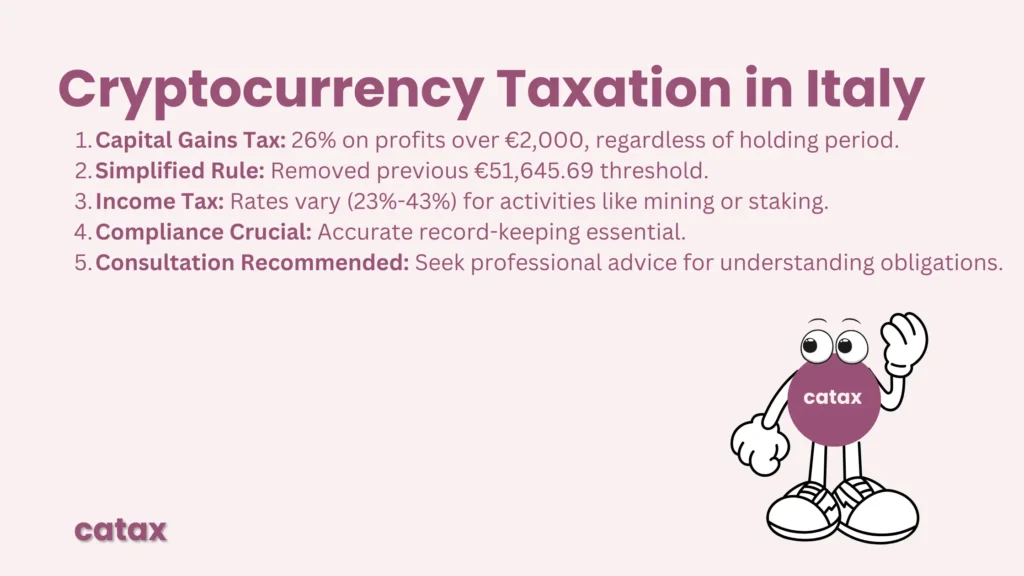
Can the Italian Revenue Agency (Agenzia delle Entrate) monitor cryptocurrency transactions, including those on Bybit?
The Agenzia delle Entrate, which is the Italian Revenue Agency, has the ability to monitor transactions involving decentralized digital currencies. Users who make use of sites such as Bybit will find this to be very pertinent. Cryptocurrencies are frequently chosen by investors due to the fact that they are decentralized and offer privacy. However, platforms such as Bybit are required to apply “Know Your Customer” (KYC) standards in accordance with directives issued by the European Union. Due to the fact that these policies require the acquisition of specific user information, the anonymity of transactions is reduced. The completion of this stage helps to prevent activities related to money laundering and assures compliance with tax rules.
The DAC8 directive intends to include cryptocurrency into the tax regulations that are in place within the European Union. The adoption of this step demonstrates an increasing effort to classify cryptocurrency transactions as taxable activities. For individuals who are trading on Bybit in Italy, it is essential to comprehend and fulfill their tax requirements in the appropriate manner. In order to comply with tax regulations, the Italian Revenue Agency emphasizes the importance of maintaining correct records. Their quest for increased openness demonstrates that they are able to monitor transactions involving cryptocurrencies.When it comes to Bybit cryptocurrency revenue, what is the tax rate in Italy?
How should you handle tax reporting for Bybit transactions in Italy?
Keeping track of your Bybit taxes in Italy needs careful record-keeping, especially since the Italian tax office, Agenzia delle Entrate, hasn’t provided complete instructions yet. The changes in how crypto gains are taxed, announced in the 2023 budget. Show that Italy’s tax officials are paying more attention to crypto transactions. To be ready for any checks and to follow the rules, here are the important records you need to keep:
- Transaction Dates: Keep track of when each transaction occurred.
- Cryptocurrencies Involved: Note which cryptocurrencies were involved in each transaction.
- Type of Transaction: Document whether the transaction was a buy, sell, trade, or other type.
- Transaction Amounts: Record the quantities of crypto bought or sold.
- Transaction Value in EUR: Convert and record the value of your transactions into Euros.
- Gains or Losses: Calculate and document the gain or loss from each transaction.
The 2023 budget update requires crypto investors in Italy, including those using Bybit, to pay a 26% tax on any gains exceeding €2,000 within the tax year. It’s crucial to prepare your records accordingly to report and pay taxes correctly on Bybit and other crypto transactions.
Guidance for Filing Bybit Crypto Taxes in Italy: Choosing the Right Form and Deadlines
For filing taxes on Bybit transactions in Italy, taxpayers must select the appropriate form based on their income type, with each form having its filing deadline:
- Modello 730: This form is for individuals with employment income, credits, or deductions to declare. The deadline for filing the Modello 730 form is September 30th of the following tax year. For instance, if you’re reporting income for the 2023 tax year, you must submit the Modello 730 by September 30th, 2024.
- Modello Redditi Return: The Modello Redditi Return is for individuals reporting various types of income, including employment income, tax withheld, capital gains (with supplementary Form RT), or foreign income and assets (with supplementary Form RW). The deadline for filing the Modello Redditi, along with Form RT for capital gains, is November 30th of the following tax year. Using the same example, if you’re reporting for the 2023 tax year, you need to file the Modello Redditi (and Form RT) by November 30th, 2024.

Crypto investors, specifically those using Bybit for their transactions, should focus on the Modello Redditi PF to report their gains. This ensures compliance with Italian tax laws and proper reporting of any capital gains derived from cryptocurrency transactions.
Navigating Crypto Taxes in Italy for Bybit Enthusiasts: A Friendly Guide
Let’s picture you’ve jumped into the crypto world using Bybit and have made some clever investments. For example, you bought Ethereum for €10,000, and its value has climbed to €20,000. If you’re thinking about using that Ethereum to purchase a car, in Italy, it’s time to think about taxes. You’ve earned a profit of €10,000, and the Italian tax authorities are interested in their share, based on the country’s rules for cryptocurrency profits.
Moving on to utility tokens – maybe you’re exploring them or even planning to start an ICO. The Italian Revenue Agency, which keeps a close eye on these things, hasn’t set clear rules for utility tokens yet. However, the overall understanding is that if you’re earning from these tokens, through mining or offering services, it’s considered regular income. It’s similar to discovering a treasure in your backyard and having to report this fortune to the tax officials.
Here’s a nutshell version for those navigating the crypto transactions via Bybit in Italy:
- Crypto Spending: Buying stuff with crypto? That’s a taxable event. If your crypto has grown in value and you use it, you’re making a gain, and the tax folks will be interested.
This guide is all about demystifying the process, making sure you can enjoy the crypto journey without any surprises from the tax department. Remember, it’s always a good idea to keep a detailed record of your transactions, just in case the taxman comes knocking!
Income Tax Slab Rate for Crypto in Italy
The income tax rate slab for cryptocurrency gains in Italy for the fiscal year 2024.
| Taxable Income (EUR) | Tax Rate (%) |
|---|---|
| Up to €15,000 | 23 |
| €15,001 to €28,000 | 25 |
| €28,001 to €50,000 | 35 |
| Over €50,000 | 43 |
Are Any Crypto Transactions Tax-Free in Italy?

While tax authorities are paying closer attention to cryptocurrency transactions, it’s important to note that not every crypto activity triggers a tax event. Specifically, there are certain situations where crypto transactions may be exempt from taxation:
Here are the key points regarding tax-free crypto transactions in Italy:
- Buying Crypto with Euros: Transactions involving the purchase of cryptocurrencies using euros are not subject to tax. This provides a tax-friendly entry point for investing in crypto.
- Holding Crypto: Simply holding onto your cryptocurrencies, without selling or trading, does not trigger a taxable event. Investors can benefit from potential market appreciation tax-free.
- Transferring Between Own Wallets: Moving your crypto assets between wallets you own, such as from a trading platform to a personal hardware wallet, is tax-exempt. This allows for secure asset management without incurring taxes.
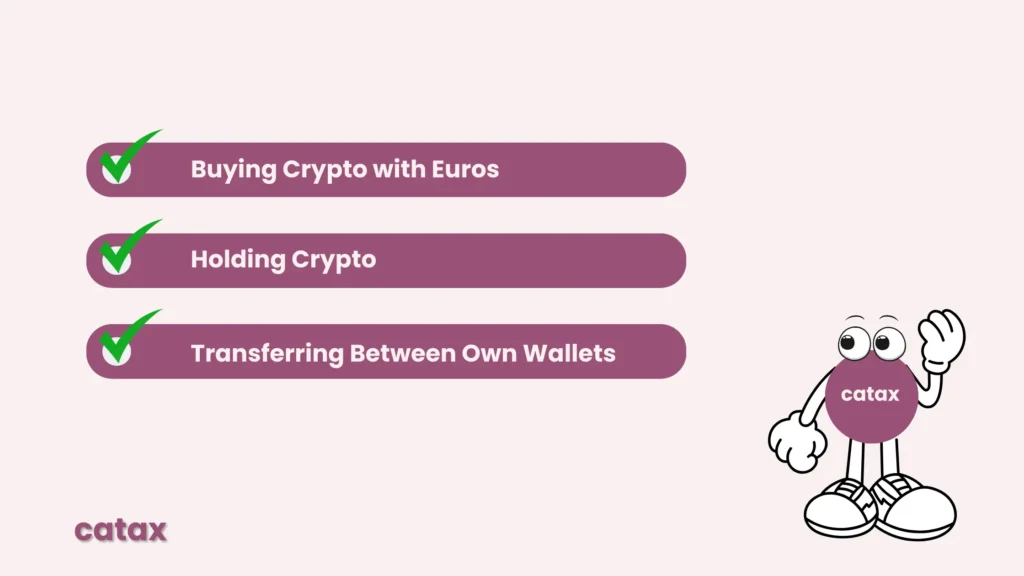
How are crypto transactions taxed in Italy, particularly on Bybit?
These are some crypto transactions taxed in Italy.
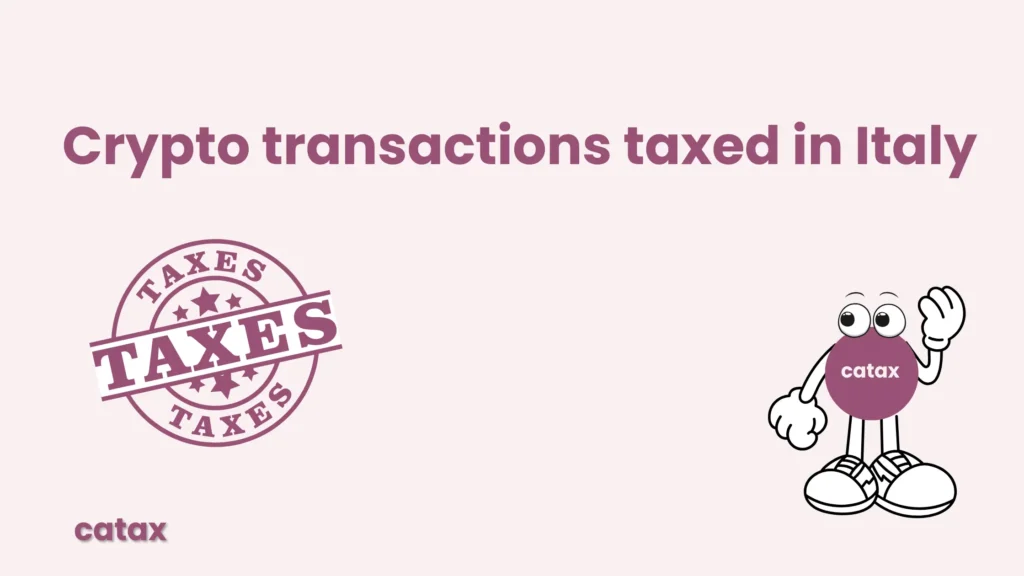
Selling crypto for euros
When you sell your cryptocurrency for euros, you’re essentially disposing of an asset. Any profit you make from this transaction is subject to Capital Gains Tax at a fixed rate of 26%. This tax applies regardless of the amount you’ve gained from the sale.
Trading crypto for crypto
Trading one type of cryptocurrency for another is also considered a disposal of an asset. This means that any gain you realize from such trades is subject to the same 26% Capital Gains Tax rate. It’s important to note that even though you’re not converting your crypto into fiat currency, the tax obligation remains the same.
Spending crypto on goods or services
Mining and staking rewards
While the Italian tax agency hasn’t provided specific guidance on taxing mining and staking rewards, taxpayers generally understand that they should treat these rewards as additional income. Additionally, this means you may be liable to pay Income Tax based on the fair market value of the tokens received at the time of receipt. Consequently, it’s advisable to consult with a crypto-savvy accountant to ensure compliance with tax obligations.
Defi investments
Decentralized Finance (DeFi) investments introduce complexities in taxation due to the variety of protocols and transactions involved. Tax implications can vary widely depending on how your DeFi investments operate. Given the intricate nature of DeFi, seeking advice from a knowledgeable accountant is crucial to understanding your tax liabilities accurately.
Gifting crypto
In Italy, it’s not clear how giving crypto as a gift affects taxes, because the tax office hasn’t given specific advice yet. Italy does have rules for taxes on gifts and inheritance, but it’s not sure if these rules apply to cryptocurrencies like Bitcoin or Ethereum. The situation could affect both the person giving the gift and the one receiving it. It’s a good idea to talk to an accountant who knows about crypto to understand what taxes might be involved when you give crypto as a gift.
Navigating Your Bybit Taxes in Italy with Catax: Essential Steps
- Connect Catax and Bybit Accounts: Begin by linking your Bybit and Catax accounts to ensure seamless integration. Generate API keys on Bybit for secure data sharing, allowing Catax to access your transaction history accurately.
- Import Your Transactions: Once linked, Catax will automatically import your full transaction history from Bybit, covering trades, deposits, and withdrawals. It’s crucial to review this imported data for completeness and accuracy.
- Review Transactions Carefully: Scrutinize the detailed transaction data compiled by Catax. Identifying and addressing any discrepancies early on is key to ensuring the accuracy of your tax filings.
- Select the Correct Tax Year: In Italy, the tax year aligns with the calendar year, starting on January 1st and ending on December 31st. Make sure to select the appropriate tax year for your report to comply with the Italian Revenue Agency’s (Agenzia delle Entrate) requirements.
- Generate Your Tax Report: Utilize Catax to calculate and compile a detailed tax report tailored to your activities. This report will include an itemized account of your capital gains and losses, income from cryptocurrency transactions, and any relevant deductions, providing a clear overview of your tax obligations.
- Thoroughly Review Your Report: Before proceeding, meticulously review your Catax-generated tax report for any potential errors. Accurate reporting is crucial to avoid issues with the Italian Revenue Agency.
- Submit to the Agenzia delle Entrate: Finalize your tax report and submit it as part of your tax return to the Agenzia delle Entrate, adhering to their submission deadlines to avoid penalties. The deadline for online submissions typically falls on November 30th for the previous fiscal year, but it’s always best to confirm the current year’s deadline.
FAQs (Frequently Asked Questions)
Catax is a tool designed to simplify the process of calculating and reporting your cryptocurrency taxes. It connects with your Bybit account to accurately track and report your transactions, ensuring you meet Italy’s tax requirements without hassle.
Yes, you should report all taxable events, including trades, sales, and income from cryptocurrencies, to comply with Italian tax laws. Catax can help organize and prepare these reports for you.
Yes, you can typically deduct losses on your crypto investments from your overall capital gains. Catax can assist in calculating these figures accurately for your tax filings.
Certain transactions, like buying crypto with fiat and transferring crypto between your wallets, might not trigger taxable events. Catax can help identify which activities are tax-exempt based on current Italian regulations.
It’s important to rectify past non-compliance by filing amended returns for the years you missed. Catax can aid in compiling your past transactions and determining what you owe.
